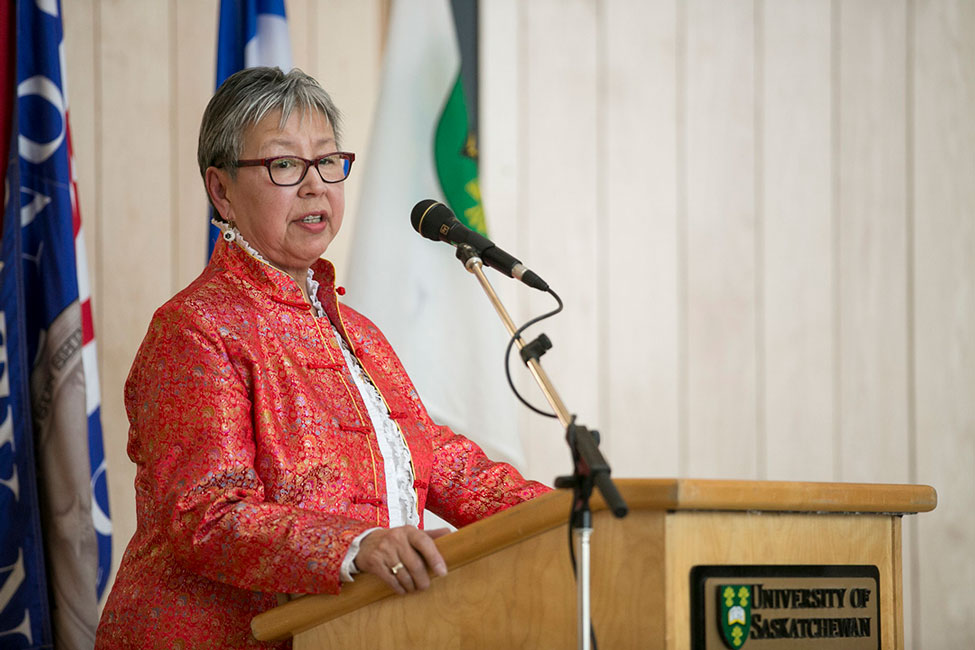
Lillian Dyck, first First Nations woman in Canada’s Senate, to retire
Now called a trailblazer, Sen. Lillian Dyck (BA'66, BA'68, MSc'70, PhD'91) says she used to be called a “troublemaker.”
By Jolson Lim | iPolitics“I think I was born with a stubborn streak,” Dyck said in an interview with iPolitics last week. At the same time, she expressed humility. Few people call her a trailblazer to her face, she said.
“It’s just a matter of fact, right?” she added. “I just happen to be the first one to do a number of different things.”
Dyck retires today, the date she turns 75, the age limit for sitting senators. She is the first First Nations woman and first Canadian-born Chinese person to be appointed to the Senate. Before politics, she was one of the first Indigenous women in Canada to go into the field of neuropsychiatry.
The senator from Saskatchewan was appointed by former prime minister Paul Martin in 2005. Fifteen years later, Dyck has earned a reputation as a tireless advocate for Indigenous women in the halls of the Senate.
Dyck said a highlight in her Senate career was removing sexism in the Indian Act, which long stripped status for First Nations women married to non-First Nations men. Her Cree mother, who was from the Gordon First Nation, had lost her Indian status when she married a Chinese man.
A decades-long push for the inequity to be addressed culminated in the tabling of Bill S-3. In a key moment close to passage in late 2017, senators pushed for the government to agree to a fixed date for removing the inequity after an unspecified period of consultations.
But fearing the government would not pass the bill with another amendment, Dyck was able to convince enough colleagues to support its passage.
“I had to get up on my feet and convince them that I, too, wanted the whole nine yards,” she said. “But the government was not able to do that at the moment in time. If we went that route to try to make them amend it again, we might lose what we gained.”
In August 2019, the final provisions of the bill were brought into force, correcting a historical wrong.
Another moment for Dyck was pushing for changes to Bill C-75, the Liberals’ 2019 criminal justice bill, that would require judges to consider harsher sentences in cases of violence against Indigenous women.
While some in the legal community feared it could increase incarceration rates for Indigenous individuals, the government acted based on recommendations of the final report of the national inquiry in missing and murdered Indigenous women and girls.
Dyck, the chair of the Senate Aboriginal people’s committee, had also invited the inquiry’s chief commissioner, Marion Buller, to testify as C-75 neared passage.
“I’ve been very fortunate that in the last two or three years I’ve been able to accomplish quite a bit,” she said.
Read the full article at https://ipolitics.ca.

